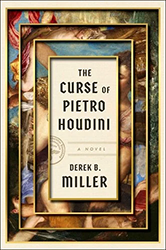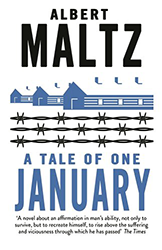The Rimons, the central characters in Lia Levi’s taut and compact novel, are a Jewish- Italian middle-class family living in Genoa. Father Marc is an émigré from Belgium, a diamond cutter; mother Emilia is a member of an extended Genovese family, somewhat snobbish and spoiled; and their only child, Alessandro, is, at the outset, regarded by his parents as something of a genius. Their interaction with family, friends, schoolmates, and the local Rabbi, filtered mostly (but not only) through Alessandro’s point of view, could be the stuff of a family TV situation comedy, with petulant Emilia, hen-pecked Marc, irascible Grandfather Luigi, and cute, but exasperating, Alessandro. Except that it is 1930s Italy and, as the narrator asserts, history has other ideas about how this family will turn out.
Mussolini’s promulgation of anti-Jewish laws in 1938 presents a crisis for the family. Initially, life goes on, except for annoyances such as Alessandro’s ejection from school and Marc losing his license to ply his trade. Emilia tries to play down the significance. It is Italy, after all; laws are always being passed and not enforced. Marc is less sanguine. He has a British passport, he reminds Emilia, and wants to get out while there’s time. Emilia will have none of it. Alessandro, in the meantime, is bewildered by the quarreling between his parents and by the wider discussion taking place when the extended family meets at the home of a wealthy relative. Emilia prevails for the time being as the net of anti-Jewish restrictions closes in on the family. Marc is sent into “internal exile” as a resident alien, but he manages to lead a relatively tranquil life in a remote village where fascism is largely ignored. But, as histories of the fate of Italian Jewry in the Holocaust tell us, life changed for the worse when the Nazis took wider control of northern Italy following the collapse of Mussolini’s government in 1943. The final third of Levi’s novel depicts the family’s attempt to flee in the face of a deepening threat to its existence. The novel moves from sitcom to nail-biting thriller.
Lia Levi grew up in wartime Italy and experienced the effect of the anti-Jewish laws as a child and teenager. The story in this novel, however, is based on the experiences of her husband and his family. After the war, Levi spent many years as editor of an Italian journal of Jewish themes, Shalom, and turned to writing fiction when she was in her 60s. Now 90 years old, she is author of many books for children and adults, many of which have garnered major awards in Italy. Tonight is Already Tomorrow was a finalist for the Strega Prize in 2018 and was the winner of the Strega Youth Prize, usually awarded to books for children or young adults. This is only her second novel to appear in English translation. That previous novel, The Jewish Husband, also focused on the fate of Italian Jews under fascism. Despite some flaws, such as a multiplicity of view points and a somewhat credulity-straining conclusion (although sometimes truth is stranger than fiction), Tonight is Already Tomorrow is a significant addition to the other novels and memoirs of the Holocaust in Italy, such a Giorgio Bassani’s Garden of the Finzi-Continis and Primo Levi’s work.





